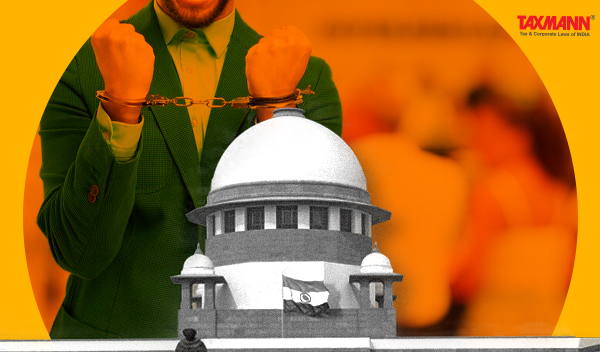Interim Bail Granted in GST Evasion Case on Ground That Arrest Must Be Based on Valid Reasons to Believe | HC
- Blog|News|GST & Customs|
- 2 Min Read
- By Taxmann
- |
- Last Updated on 19 February, 2025

Case Details: Natwar Kumar Jalan vs. Union of India - [2025] 171 taxmann.com 112 (Gauhati)
Judiciary and Counsel Details
- Soumitra Saikia, J.
-
Dr. A. Saraf, A. Goyal, & A. Choudhury, Advs. for the Petitioner.
Facts of the Case
The petitioner was accused of GST evasion by fraudulently claiming input tax credit (ITC) and was subsequently arrested and detained. The case was registered under Section 132(1)(c) of the Central Goods and Services Tax (CGST) Act, 2017.
The petitioner argued on the grounds that his detention was unwarranted as he had fully cooperated with the investigation, no final assessment of the alleged tax evasion had been made and there was no evidence suggesting that he would abscond or tamper with evidence. He further contended that his arrest under Section 69 of the CGST Act was premature.
The respondent maintained that the arrest was justified under Section 69 of the CGST Act, as the Commissioner had ‘reasons to believe’ that the petitioner had committed an offense under Section 132(1)(c).
High Court Held
The Gauhati High Court observed that the authorities had not yet determined the petitioner’s tax liability, that the petitioner had complied with investigation proceedings and summons, and that there was no material evidence indicating the likelihood of absconding or tampering with evidence.
The Court subsequently held that while Section 69 of the CGST Act empowers authorities to arrest, this power should be exercised only when there are valid ‘reasons to believe’ that an offense under Section 132 has been committed. Accordingly, the Court granted interim bail to the petitioner.
Disclaimer: The content/information published on the website is only for general information of the user and shall not be construed as legal advice. While the Taxmann has exercised reasonable efforts to ensure the veracity of information/content published, Taxmann shall be under no liability in any manner whatsoever for incorrect information, if any.

Taxmann Publications has a dedicated in-house Research & Editorial Team. This team consists of a team of Chartered Accountants, Company Secretaries, and Lawyers. This team works under the guidance and supervision of editor-in-chief Mr Rakesh Bhargava.
The Research and Editorial Team is responsible for developing reliable and accurate content for the readers. The team follows the six-sigma approach to achieve the benchmark of zero error in its publications and research platforms. The team ensures that the following publication guidelines are thoroughly followed while developing the content:
- The statutory material is obtained only from the authorized and reliable sources
- All the latest developments in the judicial and legislative fields are covered
- Prepare the analytical write-ups on current, controversial, and important issues to help the readers to understand the concept and its implications
- Every content published by Taxmann is complete, accurate and lucid
- All evidence-based statements are supported with proper reference to Section, Circular No., Notification No. or citations
- The golden rules of grammar, style and consistency are thoroughly followed
- Font and size that’s easy to read and remain consistent across all imprint and digital publications are applied



 CA | CS | CMA
CA | CS | CMA
